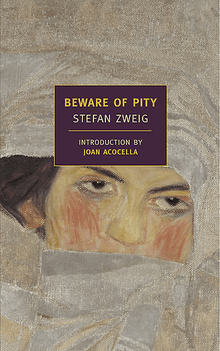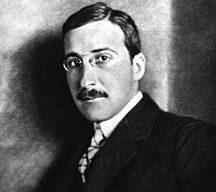Beware of Pity (novel)
 | |
| Author | Stefan Zweig |
|---|---|
| Original title | Ungeduld des Herzens |
| Translator |
Phyllis Blewitt Trevor Eaton Blewitt |
| Country | Germany |
| Language | German |
| Publisher | S. Fischer Verlag |
Publication date | 1939 |
Published in English | 1939 |
| Pages | 386 |
Beware of Pity (German: Ungeduld des Herzens, literally The Heart's Impatience) is a 1939 novel by the Austrian writer Stefan Zweig. It was Zweig's longest work of fiction. It was adapted into a 1946 film with the same title, directed by Maurice Elvey.[1]
Plot summary
The young lieutenant Anton Hofmiller is invited to the castle of the wealthy Hungarian Lajos Kekesfalva. He meets his paralyzed daughter Edith and develops subtle affection and deep compassion for her. Edith falls in love with him. When she develops hopes for a speedy recovery, he eventually promises to marry her when she is recovered, with the hope that this will convince her to take the treatment. However, for fear of ridicule and contempt, he denies the engagement in public. When Edith learns of this, she takes her own life. Overwhelmed by guilt, he enlists in the First World War.
In popular culture
Wes Anderson loosely based The Grand Budapest Hotel on Beware of Pity and The Post Office Girl.[2]
See also
References
| ||||||||||||
